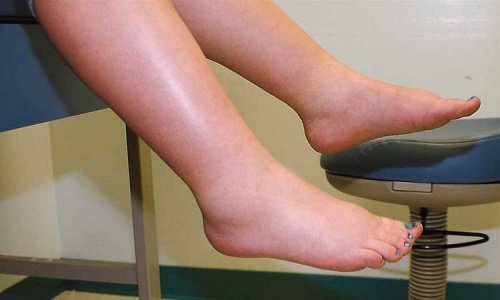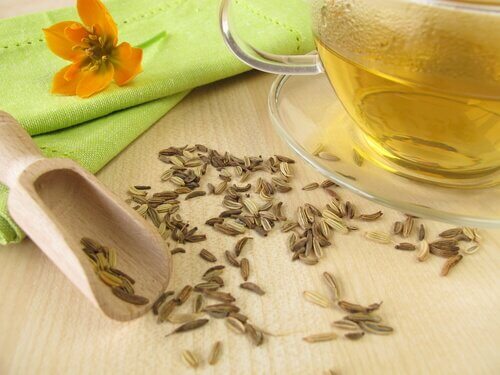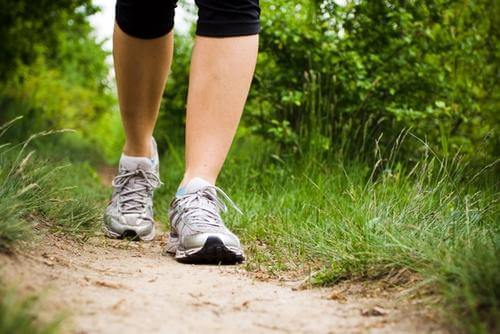How to Fight Water Retention in the Legs


Written and verified by psychologist Valeria Sabater
Water retention (edema) is a common problem that affects people for different reasons. Some of the main causes are a sedentary lifestyle and excessive salt consumption. Cardiovascular disease, kidney disease, and being overweight or obese can also be contributing factors.
Edema tends to affect the lower limbs. Have you hever come home from work to find your legs are swollen and you might even have an uncomfortable feeling of heaviness and cramping in your calves and feet? If so, you know how uncomfortable that can be. So, do you know how to get relief?
Solutions for the discomfort caused by water retention and swelling
If you suffer from water retention and your legs often swell and feel heavy, you should go to your doctor to get a diagnosis and improve your lifestyle.
One thing you can do is reduce your daily salt intake. Remember that your body uses a complex hormone system to keep your fluid levels balanced. If you eat a lot of salt, it will accumulate in your body and your tissues will become inflamed, which can cause water retention.
When your body is unable to get rid of excess water through urine or sweat, it swells.
It’s important to remember that salt isn’t the only thing that can cause problems. Sugar, saturated fat, refined flour, nd ultra-processed food and drinks are usually just as bad for you.
The experts at the Spanish Heart Foundation indicate that you should eat a balanced diet based on fresh foods, prepared in a healthy way (steamed, grilled, baked, etc.).
Natural drinks for water retention
If you suffer from swelling and discomfort caused by water retention, make sure you drink enough water over the course of the day. You don’t have to drink a specific amount, but make sure you stay hydrated.
If you have a hard time drinking enough water because it’s boring or you don’t like the taste, think about incorporating some natural beverages into your day-to-day. Pineapple peel water and other infusions can be a great option. Here are some you might like:
- Green tea.
- Chamomile tea.
- Pennyroyal.
- Mint.
- Dandelion.
- Horsetail.
Fennel tea

Ingredients
- 1 teaspoon of fennel (5 g)
- ½ teaspoon of anise (3 g)
- 1 cup of water (200 ml)
Preparation
- Just boil the water.
- Add the fennel.
- Let the tea boil for at least 15 minutes.
- Add the anise and boil for 10 more minutes.
- Remove from heat and steep for 10 more minutes.
- Drink in moderation.
Stay active and say goodbye to water retention

Lastly, you should stay active and do at least a half hour of exercise everyday.
Put on some comfortable clothes, get out your shoes, disconnect your mind. Go for a walk. Relax, free your mind, and see how this gentle exercise improves your circulation and reduces swelling. After a few weeks of regular exercise, you’ll notice how your legs feel lighter and better-rested.
Avoid a sedentary lifestyle and enjoy good health – it’s worth it!
All cited sources were thoroughly reviewed by our team to ensure their quality, reliability, currency, and validity. The bibliography of this article was considered reliable and of academic or scientific accuracy.
- Rather, M. A., Dar, B. A., Sofi, S. N., Bhat, B. A., & Qurishi, M. A. (2016). Foeniculum vulgare: A comprehensive review of its traditional use, phytochemistry, pharmacology, and safety. Arabian Journal of Chemistry. https://doi.org/10.1016/j.arabjc.2012.04.011
- Wright, C. I., Van-Buren, L., Kroner, C. I., & Koning, M. M. G. (2007). Herbal medicines as diuretics: A review of the scientific evidence. Journal of Ethnopharmacology. https://doi.org/10.1016/j.jep.2007.07.023
- Férez Gutiérrez, R. M., Yescas Laguna, G., & Walkowski, A. (1985). Diuretic activity of Mexican equisetum. Journal of Ethnopharmacology. https://doi.org/10.1016/0378-8741(85)90093-5
This text is provided for informational purposes only and does not replace consultation with a professional. If in doubt, consult your specialist.








